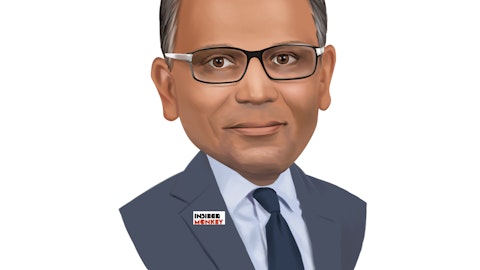Value Effect: As with stock splits, it is difficult to make an argument that index inclusion or exclusion changes value, but there is a possible, albeit unlikely, path. When a company becomes part of a widely followed and tracked index like the S&P 500, its investor base will change to become more institutional and more passive. You can argue that these investors bring very different views on risk and preferences investing, capital structure and cash return than investors in the rest of the market. For instance, this study documents that companies that become part of the S&P 500 tend to behave more like their peer group on dividends and buybacks and become less profitable, after the index inclusion than before the inclusion, and these changes can affect value adversely.
Gap Effect: As far as I know, there is no index that looks at how much a company is under or over valued in making a judgment on whether to include it. That said, though, companies that get added on to the index tend to be companies whose stock prices have done better in the period prior to that add on, than the companies removed from it were doing prior to their removal. For some contrarians, the act of being included in an index may therefore be a signal that the stock price has outrun value.
Pricing Effect: The pricing argument for index inclusion is that it can increase the investor base for a company, by drawing in investors who invest only in that index (like index funds) or primarily in the index (like many large active institutional investors), and that increase should play out in a jump in stock prices on the stock. The effect, though, will vary depending upon the company in question and the index on which it is listed. The Dow 30 may be widely followed index, but it is not an index fund favorite or even one that institutional investors use to track their returns. Consequently, I don’t think that Honeywell, Salesforce and Amgen are going to be helped by being added to that index or that Exxon Mobil, Pfizer and Raytheon will be hurt by their exclusion from it. In contrast, when ServiceNow was added to the S&P 500, its stock price climbed 4%, reflecting both the company’s status (low profile, not widely followed) and the S&P 500’s standing as an index. I know that many Tesla Inc (NASDAQ: TSLA) bulls are awaiting its inclusion in the S&P 500, and with the full recognition that I will be wrong in hindsight, there is nothing that leads me to be believe that it will be a game changer for the company. In fact, you could argue that this company’s rise in market capitalization has come from individual investors with strong views on the company, and that the investors that may be drawn to the company post-index-inclusion may not be in sync with the company’s business practices.
– If you are an investor, nothing that happened on August 31 should alter your views on the company. In other words, if you believed that Tesla Inc (NASDAQ: TSLA) and Apple Inc. (NASDAQ: AAPL) were (under) over valued on August 30, 2020, you will continue to do so on August 31, notwithstanding the stock splits and the chatter of Tesla becoming part of the S&P 500.
– If you believe that one or both of these stocks is under or over valued, and you are hoping that the stock splits will close the gap, I am afraid that you are disappointed. These are among the most widely followed stocks in the world and stock splits are not going to draw new attention or cause neglected details to come to the surface.
– However, if you are a trader and you play the momentum game, this is your moment of maximum pain and gain. It is conceivable, and perhaps even likely, that the split will keep the momentum going for the near term, and that you can take advantage by buying today and holding for a period. The problem with momentum is that it is fickle and for those who bought the stock expecting the stock split to be their big payday, if the results fall short of expectations, there will be disappointment. If it sounds like I am playing both sides when I say this, I am, and that is one reason I stay on the sidelines as a trader. I am not good at it.




